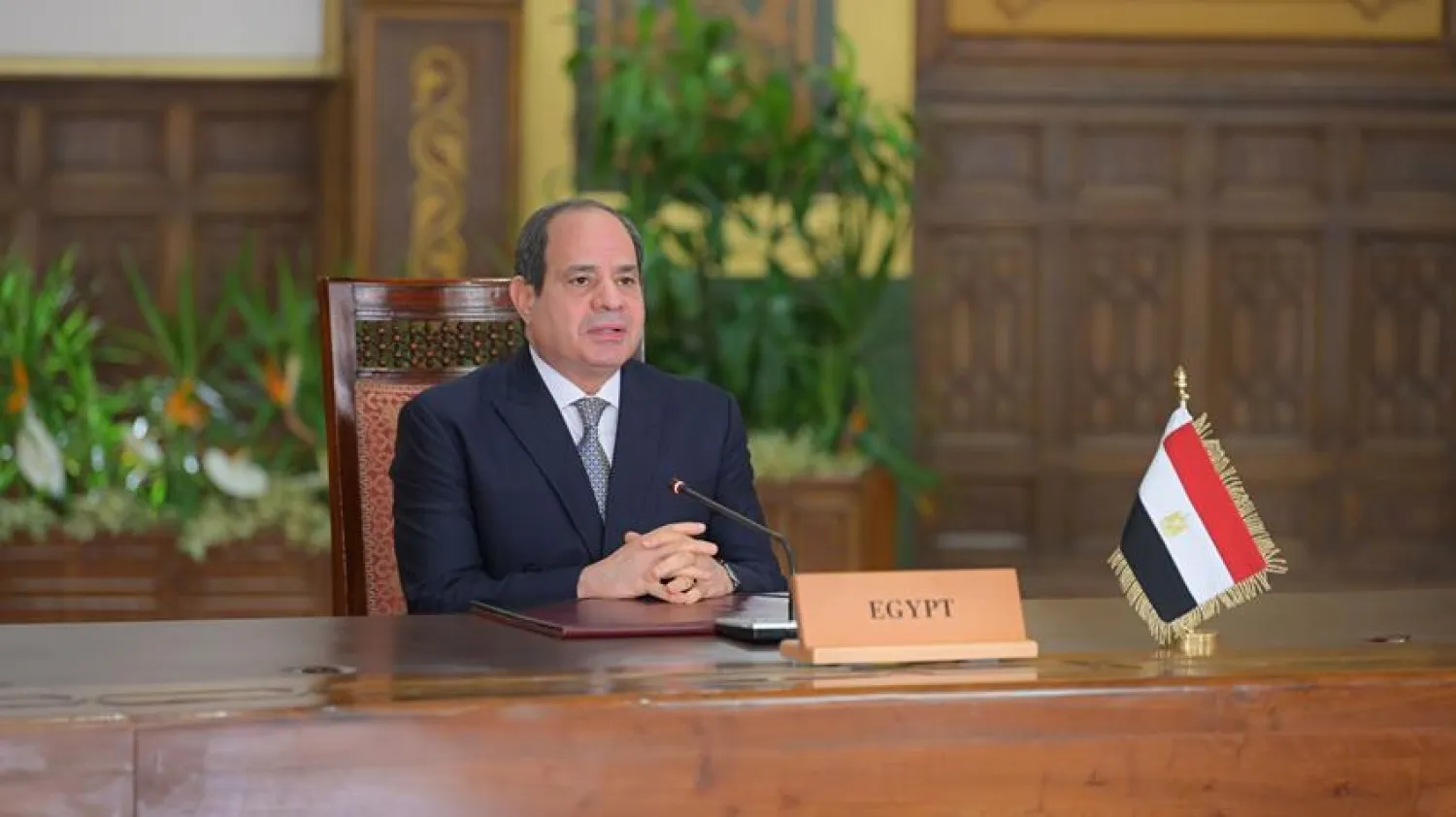Egyptian President Abdel Fattah El-Sisi warned of a grave threat to regional security and stability amid the faltering negotiations between Egypt, Sudan, and Ethiopia over the Grand Ethiopian Renaissance Dam (GERD) on the Nile River.
Egypt and Sudan have been negotiating with Ethiopia for ten years to reach an agreement on filling and operating the dam, but the talks have not yielded any results.
Last week, the UN Security Council called on the three countries to resume negotiations under the auspices of the African Union (AU), stressing in a presidential statement the need to reach an agreement acceptable and binding to all.
Speaking at the UN General Assembly, Sisi said: “You might all be aware of the outcome of a decade-long cycle of negotiations among Egypt, Sudan, and Ethiopia as a result of clear intransigence and unjustified rejection to engage positively with the negotiations process in its successive stages, and instead choosing a unilateral approach and imposing facts on the ground.”
The Nile River has always been the principal artery of life in Egypt, which explains the overwhelming concern by the Egyptian citizen regarding the GERD, said the president.
“Egypt, which acknowledges the rights of its brothers for development,” suffers from drought “and its people remain below the level of water poverty.”
However, Egypt is still committed to reaching a legally binding, balanced, and comprehensive agreement on the filling and operation of the dam to protect the existence of 150 million Egyptians and Sudanese, said Sisi.
Cooperation among African countries “will not be attained when one side determines the requirements of the other. This process should be reciprocal.”
Sisi underscored the need for all countries to respect their commitments under international law and the relevant UN Security Council resolutions.
To prevent the situation from escalating into a threat to international peace and stability, Egypt resorted to the General Assembly to support African mediation efforts through an effective role by observers from the UN and friendly countries, asserted the president.
Ethiopia says the dam, which it has been building since 2011 on the main tributary of the Nile, is essential to the development of its economy and energy.
However, Egypt considers it a serious threat to its water share.
The Egyptian Minister of Irrigation, Mohamed Abdel-Aty, asserted that Cairo extends its hand to development, cooperation, and coordination for the common interest, in a way that does not harm any party.
He said before the plenary session on cooperation in transboundary river basins on the second day of the 5th Arab Water Forum on Wednesday in Dubai that Egypt has the right for its people or any African people to life and development.
The minister stressed the importance of water security as one of the tools to achieve the UN goals for sustainable development by working on the optimal use of every drop of water, especially in light of the many challenges facing the sector.
Egypt aims to continue regional cooperation to confront climate change and manage international river basins according to international laws and norms.









